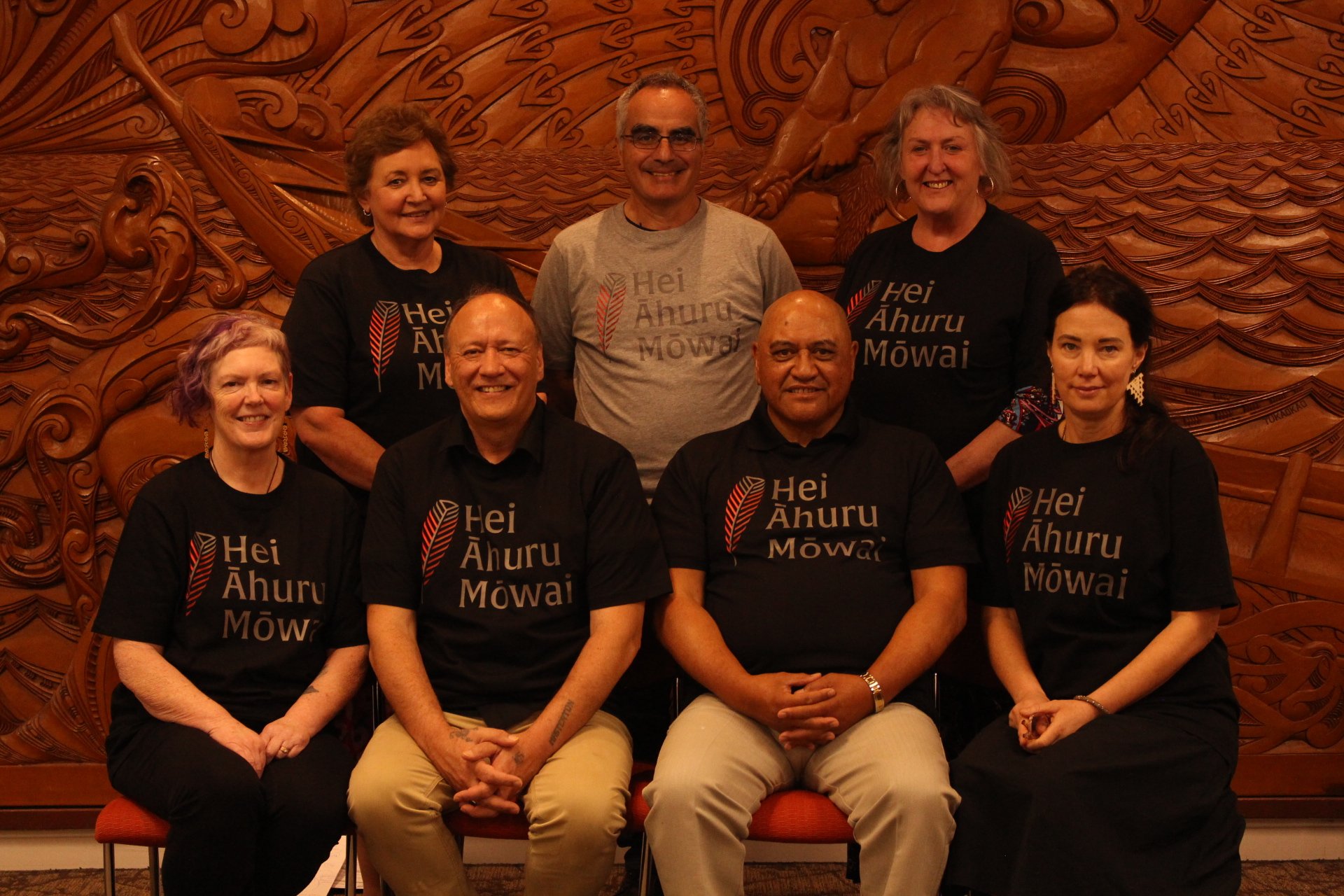
Māngai.
Expertise and leadership in cancer control.
Our members are experts leading research and in senior medical, professorial or other leadership roles in the public health sector across Aotearoa.
We share our collective expertise to advocate for equity in cancer outcomes and life expectancy for Māori, thus improving cancer outcomes for all New Zealanders.
We provide insights and evidence-based recommendations to Government, Ministries, government agencies, Members of Parliament, and other key decision makers to affect real change for whānau Māori.
We work alongside health providers, Hauora Māori providers, primary and community health organisations, iwi/hapū, rūnanga, tertiary education providers/wānanga, and others to inform, educate and advocate for more equitable cancer control policies.
Better policies will enable improved cancer prevention and screening programmes and better access to cancer screening, treatment, and support services for whānau Māori.
Our position on the most common
cancers affecting whānau Māori.
-
Ate - Liver Cancer.
Liver cancer is among the top ten most commonly-diagnosed cancers for Māori, with more than 60 Māori diagnosed each year. Liver cancer is also among the most common causes of cancer death for Māori, with more than 40 Māori dying of liver cancer each year.
Survival outcomes for liver cancer are poor, with only 20% of Māori liver cancer patients surviving to five years. Māori liver cancer patients are also over 30% more likely to die following a diagnosis of liver cancer than non-Māori. -
Kōpū - Cervical Cancer & HPV.
Overall, Māori with cervical cancer have poorer survival than non-Māori with cervical cancer. A recent study showed that Māori women or tangata Māori with cervical cancer are around 1.4 times more likely to die in five years compared to non-Māori.
Nearly all of these instances can be explained by differences in how far the disease has spread at the time of diagnosis between Māori and non-Māori. Māori women or tangata Māori with a cervix are more than twice as likely to have their cancers diagnosed at a late stage compared to non-Māori. -
Piro - Bowel Cancer.
The bowel screening programme is growing the cancer equity gap by providing less benefits for Māori than non-Māori.Bowel cancer rates are increasing for Māori while they are decreasing for non-Māori. Over half of Māori who get bowel cancer are diagnosed before the age of 60. Reducing the starting age for bowel screening from 60 to 50 for Māori and Pacific people was agreed to in 2022 but has only commenced in three regions nationally to date. Consequently, the screening age range remains between 60 - 74 years for most of the country.
-
Puka - Lung Cancer.
Lung cancer makes the biggest contribution to the life expectancy gap between Māori and non-Māori. Improvements are required all along the lung cancer control pathway from prevention, screening, early diagnosis and treatment through to palliative care. This includes preventing the starting of smoking, better access to high quality smoking cessation services, research into screening, improving early detection, diagnosis and treatment pathways, improved access to clinical trials, molecular testing and immunotherapy, and improved palliative care services.
-
Puku - H. Pylori & Stomach Cancer.
In Aotearoa, Māori are around three times more likely to get stomach cancer and more likely to die once diagnosed compared to non-Māori. In particular, Māori have higher rates of distal stomach cancers compared to non-Māori.
-
Ū - Breast Cancer.
Screening for breast cancer saves lives, and all women deserve fair access to breast cancer screening. Wāhine Māori and Pacific women have the greatest need, with higher incidence (39% and 23% respectively) and death rates (65% and 71%) from breast cancer than non-Māori and non-Pacific women. BreastScreen Aotearoa (BSA) has consistently delivered the lowest national breast screening access rates for wāhine Māori. A 2022 quality review developed sound recommendations to improve the performance of BSA.
Cancer screening in Aotearoa.
The design and implementation of all cancer screening programmes need urgent improvements and further government investment to achieve cancer outcome and life expectancy equity for whānau Māori.
We also call on the government to ensure Māori and Pacific cancer screening experts are represented in decision making at all levels of our cancer screening programmes as a critical step toward achieving equity.

Changes to Aotearoa Smokefree legislation.
-
Evidence showed the Smokefree Environments and Regulated Products (Smoked Tobacco) Amendment Act (SERPA) and the Smokefree Aotearoa Action Plan were expected to bring about rapid, massive and equitable declines in smoking rates and save thousands of lives.
Lung cancer develops among Māori at lower smoking exposures and around eight years earlier than for non-Māori. Smoking rates and lung cancer incidence simply are not reducing for wāhine Māori as they are for other groups.
We will continue to advocate for our once world-leading Smokefree legislation to be reconsidered and/or reinstated, to help Aotearoa realise the health gains we were on track to achieve under the previous legislation.

